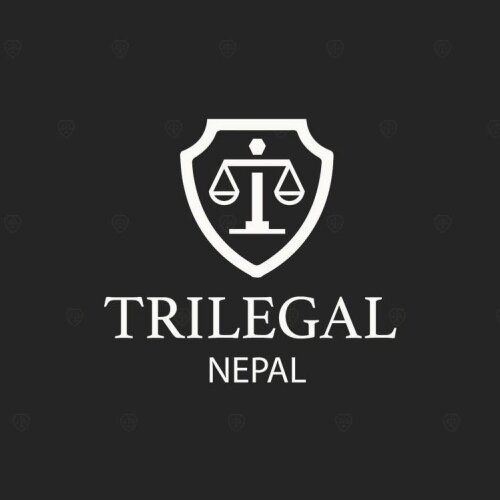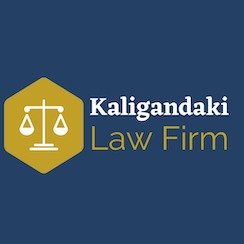Best Art & Cultural Property Law Lawyers in Kathmandu
Share your needs with us, get contacted by law firms.
Free. Takes 2 min.
List of the best lawyers in Kathmandu, Nepal
About Art & Cultural Property Law in Kathmandu, Nepal
Art & Cultural Property Law in Kathmandu, Nepal, is a specialized field that deals with the protection, preservation, and management of cultural heritage and artistic expressions. This area of law is crucial in a city like Kathmandu, home to many UNESCO World Heritage Sites and rich in cultural artifacts. Laws in this field focus on safeguarding archaeological sites, regulating the trade of art objects, and ensuring the cultural patrimony of Nepal is preserved for future generations. The legal framework in Kathmandu is influenced by international treaties and national legislation aimed at preventing illegal export, import, and ownership transfers of culturally significant property.
Why You May Need a Lawyer
Engaging a lawyer who specializes in Art & Cultural Property Law may be necessary in several situations:
- If you're an artist or collector and need advice on the legality of owning or selling art pieces.
- In case you are involved in a dispute over the ownership of cultural property.
- When you need assistance with compliance regarding heritage site management and cultural artifact handling.
- If you're facing charges related to the illegal trafficking of cultural property.
- For guidance on the repatriation of cultural items to Nepal.
- If you are developing land or a property that might impact cultural sites.
Local Laws Overview
The legal landscape in Kathmandu, pertaining to Art & Cultural Property, includes several important components:
- Ancient Monuments Protection Act, 1956: This law governs the preservation and protection of monuments and relics.
- National Parks and Wildlife Conservation Act, 1973: Covers times when cultural and natural heritage overlap, ensuring both are protected.
- The Export and Import (Control) Act, 1957: Provides regulations for controlling the export and import of cultural artifacts.
- Local Self-Governance Act, 2055 (1999): Gives local bodies the authority to manage and protect local cultural heritage.
Various international conventions ratified by Nepal also affect these laws, such as the UNESCO Convention concerning the Protection of the World Cultural and Natural Heritage.
Frequently Asked Questions
What qualifies as cultural property?
Cultural property refers to items of historical, artistic, religious, or cultural significance, including artifacts, monuments, buildings, and works of art.
Can I legally purchase and export art from Nepal?
While buying art is permitted, exporting significant cultural artifacts requires adherence to strict legal procedures and often, government authorization to prevent illegal trafficking.
What should I do if I discover a historical artifact?
It is essential to report any discovered artifacts to the Department of Archaeology to ensure legal compliance and receive guidance on how to proceed.
Are there legal consequences for damaging cultural sites?
Yes, damaging cultural sites is a criminal offense and can result in heavy fines and imprisonment, as per local laws.
How does the law protect artists' rights in Kathmandu?
Intellectual property laws in Kathmandu grant protection to artists by safeguarding their creations against unauthorized reproduction and exploitation.
Can digital art be protected under Art & Cultural Property Law?
While primarily focused on tangible heritage, aspects of digital art protection involve intellectual property law, which provides protection for such creations.
What is the process for settling a cultural property dispute?
Dispute resolution can be sought through legal arbitration, negotiation, or, if needed, by pursuing litigation in the relevant courts in Nepal.
Are there tax benefits for donating art to a cultural institution?
Yes, individuals and businesses may receive tax deductions for donating art to approved cultural institutions, subject to compliance with regulatory guidelines.
How are repatriation requests handled?
Repatriation cases often involve collaboration between governmental bodies, legal counsel, and international agencies to return artifacts to their countries of origin.
Is restoration of cultural property regulated by law?
Yes, restoration efforts must comply with guidelines from the Department of Archaeology to ensure preservation and authenticity of cultural properties.
Additional Resources
For legal advice and support in Art & Cultural Property Law in Kathmandu, consider referring to the following entities:
- Department of Archaeology: The central authority managing archaeological sites and cultural properties in Nepal.
- National Museum of Nepal: Provides resources and expertise in cultural heritage.
- UNESCO Nepal: Offers guidelines and support regarding international conventions related to cultural heritage.
- Law firms specializing in cultural property law: Local law firms can provide specific legal guidance regarding acquisitions, disputes, and other related issues.
Next Steps
If you require legal assistance in Art & Cultural Property Law in Kathmandu, consider taking the following steps:
- Consult with a lawyer experienced in Art & Cultural Property Law to understand your legal position and responsibilities.
- Reach out to the relevant authorities like the Department of Archaeology for specific compliance requirements.
- Ensure any art transactions or developments near cultural sites undergo proper legal scrutiny to avoid potential legal ramifications.
- Stay informed about local and international laws governing the trade, protection, and preservation of cultural artifacts.
Understanding the intricacies of Art & Cultural Property Law is crucial for responsible ownership, trade, and preservation of cultural heritage in Kathmandu, Nepal. Seeking professional legal advice can help navigate these complexities effectively.
Lawzana helps you find the best lawyers and law firms in Kathmandu through a curated and pre-screened list of qualified legal professionals. Our platform offers rankings and detailed profiles of attorneys and law firms, allowing you to compare based on practice areas, including Art & Cultural Property Law, experience, and client feedback.
Each profile includes a description of the firm's areas of practice, client reviews, team members and partners, year of establishment, spoken languages, office locations, contact information, social media presence, and any published articles or resources. Most firms on our platform speak English and are experienced in both local and international legal matters.
Get a quote from top-rated law firms in Kathmandu, Nepal — quickly, securely, and without unnecessary hassle.
Disclaimer:
The information provided on this page is for general informational purposes only and does not constitute legal advice. While we strive to ensure the accuracy and relevance of the content, legal information may change over time, and interpretations of the law can vary. You should always consult with a qualified legal professional for advice specific to your situation.
We disclaim all liability for actions taken or not taken based on the content of this page. If you believe any information is incorrect or outdated, please contact us, and we will review and update it where appropriate.

















